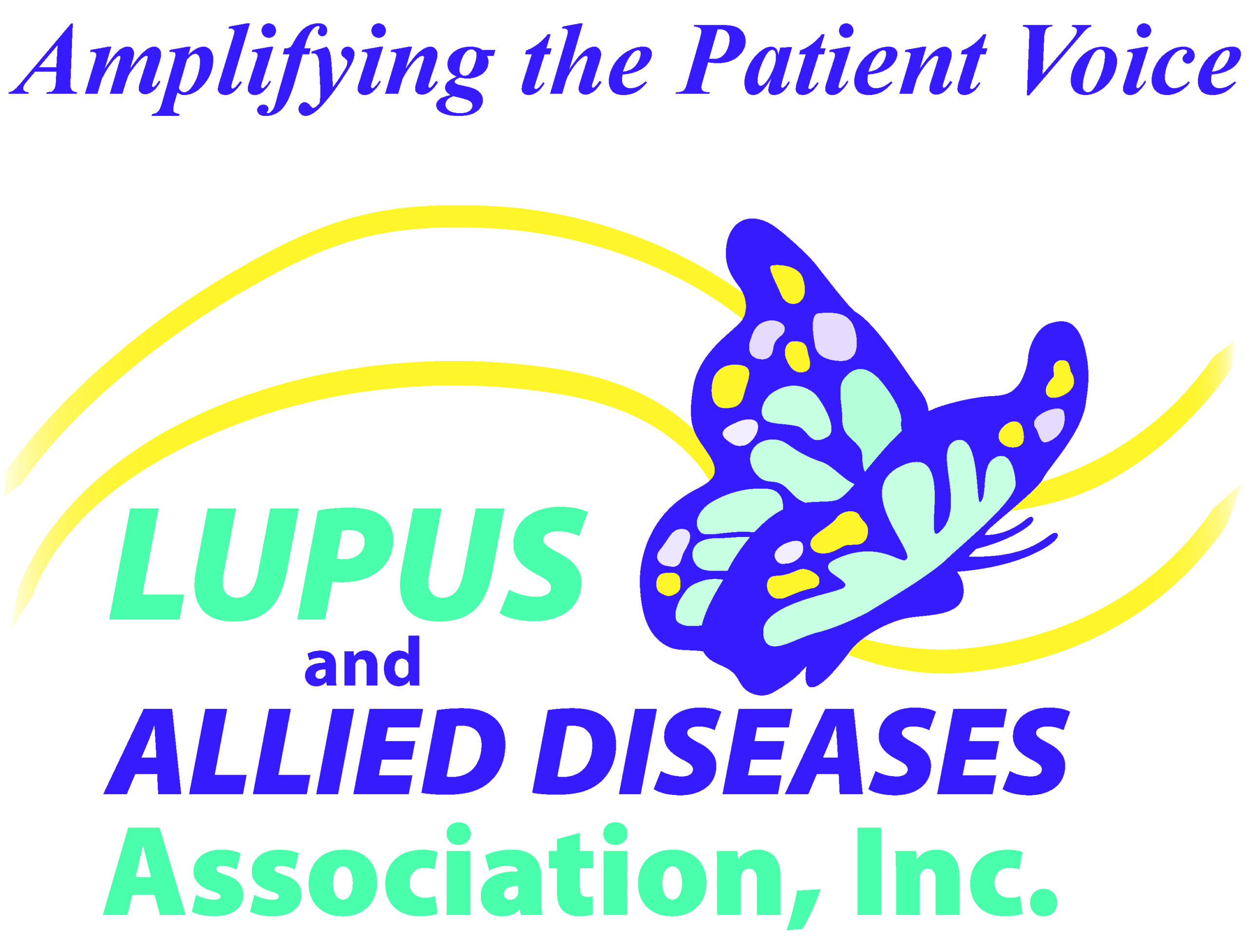Glossary
Antinuclear Antibodies (ANA)
Proteins in the blood that react with the nuclei of cells. The ANA test measures the pattern and amount of autoantibodies, which can attack the body’s tissues as if they were foreign material. Positive ANA tests are seen in 96 percent of systemic lupus erythematosus patients and in 5 percent of healthy patients.
Anti-Cardiolipin Antibodies (ACA)
Antibodies often directed against cardiolipin and found in several diseases including syphilis, antiphospholipid syndrome and systemic lupus erythematosus.
Anticoagulant
A means of detecting antiphospholipid antibodies from prolonged clotting times.
Antimalarial Medication
Drugs originally designed to prevent or cure malaria, but they’re also used in the treatment of lupus, including Plaquenil (Hydroxychloroquine).
Antiphospholipid Antibodies
These antibodies are present in one-third of those with SLE. They can alter clotting and lead to strokes, blood clots, miscarriages and low platelet counts.
Anti-RNP
Present in SLE and mixed connective tissue disease.
Anti-SM
Antibodies that are only present in lupus patients.
Anti-SSA (aka Ro antibodies)
These antibodies are associated with Sjogren’s syndrome, sun sensitivity, neonatal lupus and congenital heart block.
Arthritis
Swollen or tender joints, arthritis is usually found in two or more joints in lupus patients.
Autoimmune
The failure of an organism to recognize its own constituent parts as self, which allows an immune response against its own cells and tissues. Any disease that results from such an abnormal immune response is termed an autoimmune disease.
Chronic Disease
A long-lasting (typically more than three months) or recurrent disease. The term chronic describes the course of the disease, or its rate of onset and development. As an adjective, chronic can refer to a persistent and lasting medical condition.
Clinical Immunologist
Medical specialists who study resistance to infections and diseases. Immune reactions are studied to determine ways to boost the immune system to fight against harmful micro-organisms.
Corticosteroid
These drugs act on the immune system by blocking the production of substances that trigger allergic and inflammatory actions, including Prednisone.
CRP (C-Reactive Protein)
A blood protein. Raised levels are found in inflammation such as infections.
Dermatologist
A medical doctor who specializes in the diagnoses and treatments of conditions associated with skin, hair and nails.
Diuretic
A drug that works to produce more urine.
Discoid (Cutaneous) Lupus
A milder form of lupus because it only affects the skin. Lupus discoid is characterized by red, scaly, inflamed, coin-shaped (discoid) lesions, which are dark on the outside and light on the inside. They show up mainly on the face, but can appear on any part of the body. Discoid lupus can progress to the more serious systemic lupus erythematosus (SLE) in about 10 percent of patients.
Discoid Rash
Red, raised, scaly, disk shaped patches usually found on areas that have been exposed to the sun. They show up mainly on the face, but can appear on any part of the body.
Drug-Induced Lupus (DIL)
An autoimmune disorder caused by chronic use of certain drugs. These drugs cause an autoimmune response (the body attacks its own cells) producing symptoms similar to those of SLE. There are 38 known medications to cause DIL, but there are three that report the highest number of cases: hydralazine, procainamide and isoniazid. While the criteria for diagnosing DIL has not been thoroughly established, symptoms of DIL typically present as myalgia and arthralgia. Generally, the symptoms recede after discontinuing use of the drugs.
E-H
Fibromyalgia
A pain amplification syndrome characterized by fatigue and tender joints in the soft tissues. This disease can be caused by steroids and mistaken for lupus.
Flares
When lupus symptoms appear, it’s called a “flare.” These signs may come and go. Even if a person takes medicine for lupus, he or she may find there are times when the symptoms become worse. Learning to recognize that a flare is coming can help you take steps to cope with it. Just before a flare, many people with lupus feel very tired, have pain, a rash, fever, stomach discomfort, headaches and/or feel dizzy.
Glomerulonephritis
Inflammation of the glomerulus of the kidney. It affects about one-third of lupus patients.
Hematologic Disorder
Hemolytic anemia (low red blood cell count), leucopenia (low white blood cell count) or thrombocytopenia (low platelet count).
Hematologist
A medical doctor who specializes in the diagnoses and treatments of conditions associated with the blood system.
I-L
IgG (Immunoglobulin G)
A major antibody of plasma and an important part of the antibody response. Most autoimmune diseases are characterized by IgG antibodies.
Immunologic Disorder
Blood tests that show anti-double stranded DNA, anti-SM, antiphospholipid antibody, anti-RNA, anti-Ro, anti-LA or false positive syphilis test.
Immunosuppressive
A class of medications used to treat lupus by suppressing the immune system, including Azathioprine and Cyclophosphamide.
Inflammation
Swelling, heat and redness that results from the infiltration of white blood cells in the tissues.
Lesion
A change in tissue due to injury or disease.
Leukopenia
Low white blood cell count.
Lupus Research Institute (LRI)
The nation’s only nonprofit organization solely dedicated to novel research in lupus.
M-P
Malar Rash
Rash shaped like a butterfly over the cheeks and nose.
Mixed Connective Tissue Disease
An uncommon autoimmune disorder that causes overlapping features of primarily three connective tissue diseases — lupus, scleroderma and polymyositis.
Myocarditis
Inflammation of the heart.
Neonatal Lupus
In rare cases, the newborn of a mom with lupus may have neonatal lupus. This condition can cause skin rashes, anemia or liver problems. Symptoms usually go away after a few months and don’t cause permanent damage. Some babies with neonatal lupus are born with a serious heart defect.
Nephritis
Inflammation of the kidney.
Nephrologist
A medical doctor who specializes in the diagnoses and treatments of kidney diseases.
NSAIDs
Nonsteriodal anti-inflammatory drugs that fight inflammation, treat pain and address fever.
Neurologic Disorder
Seizures (convulsions) and/or psychosis with no other explanation.
Neurologist
A medical doctor who specializes in the diagnoses and treatments of diseases associated with the brain, spinal cord, spinal column, peripheral nerves and nervous system.
Neuropathy
Nerve disease.
NON-STEROIDAL ANTI-INFLAMMATORY DRUGS (NSAIDs or NAIDs)
NSAIDs reduce inflammation and relieve fever and pain by blocking enzymes and proteins made by the body. The term “nonsteroidal” distinguishes these drugs from those which contain steroids. Examples of NSAID’s include Aspirin, Ibuprofen, Naproxen, Daypro and Lodine.
Oral Ulcers
Sores in the nose or mouth.
Pericardial Effusion
Excess fluid around the heart sac.
Pericarditis
Inflammation of the pericardium (the sac lining the heart).
Phlebitis
Inflammation of a vein.
Photosensitivity
Reaction to sunlight, which causes skin rashes.
Pleura Effusion
Excess fluid in the sac lining of the lung.
Pleuritis/Pleurisy
Irritation or inflammation of the lining of the lung.
Primary Doctor
A general practitioner who provides continuous medical care. They’re trained to treat a wide array of health related problems and are responsible for referral to specialists as needed.
Profundus
Inflammation of subcutaneous fat.
Proteinuria
Excess protein levels in the urine.
Pulmonary Hypertension
Elevated blood pressure in the lungs.
Q-Z
Renal Disorder
Excessive protein and cell casts (abnormal sediment) found in urine.
Reynaud’s Phenomenon
Discoloration of the hands or feet (turn blue, white or red) with cold temperatures – a feature of an autoimmune disease.
Rheumatoid Arthritis (RA)
Chronic disease of the joints marked by inflammatory changes in the joint-lining membranes, which may give positive results on rheumatoid factors and ANA tests.
Rheumatologist
A medical doctor who specializes in the diagnoses and treatments of autoimmune and joint diseases.
Serositis
Inflammation of the linings (serosa) of organs, usually pleurisy (lung), pericarditis (heart) or peritonitis (abdominal).
Sjogren’s Syndrome
Dry eyes, dry mouth and arthritis found in most autoimmune disorders.
Sub-acute Cutaneous Lupus Erythematosus (SCLE)
A rash, often circular and distributed on the chest, neck and upper arms. It’s sometimes seen in patients whose blood tests are negative. Patients are very sensitive to UV light.
Synovitis
Inflammation of the tissues lining the joints.
Systemic Lupus Erythematosus (SLE)
SLE is typically the most common form of lupus and is generally considered more serious than the other three forms. SLE can affect many parts of a person’s body, including kidneys, heart, lungs, brain, blood and skin. Symptoms tend to vary among patients and can change often and suddenly. Isn’t this a generic lupus fact, not specific to SLE: Lupus can follow an unpredictable pattern of remissions (symptoms disappear) and flares (active symptoms).
Uremia
Kidney deficiency, which frequently requires dialysis.
Vasculitis
Inflammation of blood vessels.
Medical Professionals
Cardiologist
A physician who specializes in diagnosing and treating conditions of the heart and blood vessels.
Clinical Immunologist
Medical specialists who study resistance to infections and diseases. They study immune reactions to determine ways to boost the immune system to fight against harmful microorganisms.
Dermatologist
A physician who specializes in diagnosis and treatments associated with skin, hair and nails.
Endocrinologist
A physician who specializes in diseases of the endocrine glands, which are parts of the body that are responsible for producing hormones.
Hematologist
A physician who is specially trained in the diagnosis, treatment, and prevention of diseases of the blood and bone marrow as well as the immunologic, hemostatic (blood clotting) and vascular systems.
Nephrologist
A physician who specializes in kidney diseases, kidney transplantation and dialysis therapy.
Neurologist
A physician who specializes in the diagnosis and treatment of disorders associated with the brain, spinal cord, spinal column, peripheral nerves and nervous system.
Psychologist
A physician who studies the workings of the human mind, looking at things like cognition, behavior and affect.
Rheumatologist
A physician specializing in the non-surgical treatment of rheumatic illnesses, especially arthritis. Rheumatologists have special interests in unexplained rash, fever, arthritis, anemia, weakness, weight loss, fatigue, joint or muscle pain, autoimmune disease, and anorexia.



